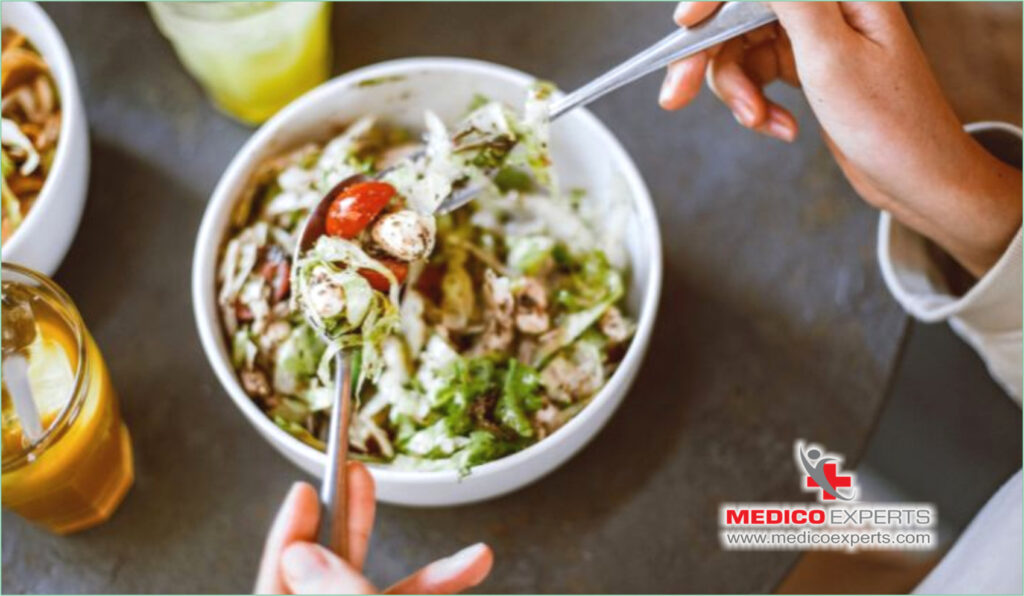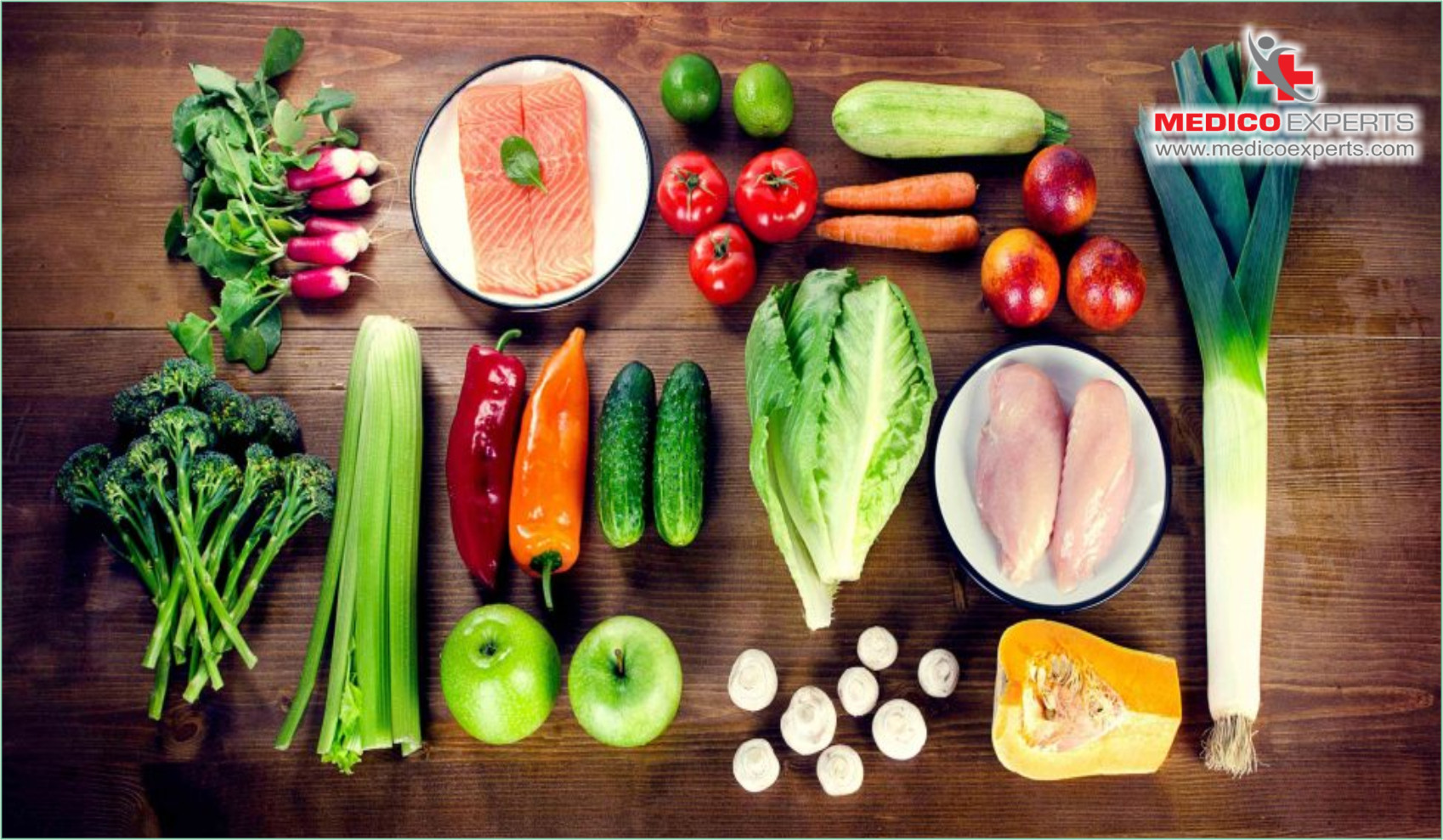It is unimaginable for many that people fighting with muscular dystrophy struggle while performing daily chores like walking or even lifting a glass is challenging for them.
But if you have muscular dystrophy, it is your reality. Research shows that the right diet can play an important role in managing symptoms, improving muscle health, and boosting overall well-being.
Your diet for muscular dystrophy can improve your energy levels, immune function, and overall health.
We will guide you about how a tailored diet can help you or your loved one combat fatigue, maintain strength, and lead a healthier, more independent life even with muscular dystrophy.
Key Takeaways
- Balanced diet. A well-structured diet is essential for controlling muscular dystrophy.
- Nutrient Focus: Protein, calcium, vitamin D, omega-3 fatty acids, and antioxidants are essential for muscle regeneration, bone development, and oxidative stress management.
- Meal Plan Suggestions: Including foods such as quinoa, eggs, poultry, leafy greens, and fish builds a foundation for muscular health while also providing diversity and taste.
- Hydration and Fiber: Staying hydrated and eating high-fiber meals helps to alleviate common concerns.
- Practical Preparation Tips: Simple meal options, such as quinoa salads, grilled protein meals, and hydrated snacks, make healthy eating more manageable and pleasurable.
- Personalized Approach: Individuals’ dietary demands differ; contacting a nutritionist ensures that programs are adjusted to specific requirements and situations.
- Expert Support: MedicalExperts offers individualized dietary solutions to improve muscle health and general well-being, backed up by professional experience.
- Additional Resources: The MedicoExperts blog provides additional information about muscular dystrophy care, such as treatment and exercises.
What is the Role of Diet in Managing Muscular Dystrophy?

One of the symptoms of MD is progressive muscle loss. Muscular dystrophy can cause significant issues for patients and caregivers. It can have terrible mental and physical consequences.
If you have muscular dystrophy, you may find it challenging to obtain adequate nutrients. Many people have trouble chewing and swallowing or experience tiredness to the point that eating becomes a burden.
A low-calorie intake may cause muscles to break down more quickly, speeding up disease progression. Moreover, walking, sitting, and even breathing can be challenging for those with muscular dystrophy, particularly Duchenne muscular dystrophy.
The progressive muscle loss will speed up without a high-calorie intake. A nutrient-dense diet high in proteins, vitamins, natural minerals, and herbs can help control symptoms and reduce side effects, such as weight gain, which is common in the late stages of the condition.
Making educated eating choices, such as a healthy diet for muscular dystrophy patients, will lead to a healthier and more fulfilled lifestyle.
Now, let us comprehend the do’s and don’ts for patients with muscular dystrophy.
Nutritional Powerhouses for Stronger Muscles

There are no unique “superfoods” developed to treat muscular dystrophy. If you are diagnosed with muscular dystrophy (MD), you should eat a well-balanced diet rich in nutrients. This diet should include foods high in fiber, protein, and necessary minerals while limiting sugar, harmful fats, and salt.
Below listed are some of the best foods for muscular strength to incorporate into your diet:
- Lean Proteins: Consume low-fat protein sources such as chicken, turkey, fish, and plant-based alternatives such as tofu to assist muscle regeneration and strength.
- Whole Grains: Eat complex carbs like whole-grain bread, brown rice, and quinoa for long-lasting energy and muscle repair.
- Healthy Fats: Consume nutrient-dense foods such as avocado, nuts, seeds, and olive oil to reduce inflammation and improve overall health.
- Fruits and vegetables: Include a variety of colorful fruits and vegetables, such as oranges, strawberries, carrots, and tomatoes, to provide critical vitamins and antioxidants.
- Calcium-rich foods: To strengthen bones, consume low-fat dairy products, leafy greens like spinach and kale and fortified plant-based milk substitutes.
By including these nutritional powerhouses in your meals, you may strengthen muscle health, increase energy, and better manage the problems of muscular dystrophy.
What to Limit or Eliminate from Your Diet

Certain foods can aggravate symptoms or lead to consequences such as metabolic disorders and cardiac problems. Limiting or avoiding these products can help you improve your general health and digestion.
Here are some foods to avoid with muscular dystrophy:
- Processed and Fried Foods: Fast food, chips, and fries are heavy in harmful fats, and salt can worsen inflammation and contribute to weight gain.
- Sugary Snacks and Beverages: Sugary snacks and beverages, such as sweets, candies, sodas, and sugary fruit drinks, can cause metabolic difficulties and energy dumps. Sweeteners include honey, corn syrup, molasses, and agave syrup.
- High-Sodium Foods: Processed snacks and meals high in salt might strain cardiovascular health.
Furthermore, you might notice slow digestion if you are an MD patient. This makes some meals more difficult to absorb. These can produce symptoms such as bloating, nausea, and discomfort. Consider lowering your consumption of the following items:
- Dairy products: These include milk, soft cheese, yoghurt, and ice cream.
- Wheat-based foods: Some products in this category are bread, spaghetti, and cereal.
- Certain legumes: Certain legumes include beans, chickpeas, and lentils.
- Some Vegetables and Fruits: These include artichokes, asparagus, onions, and garlic. Fruits include apples, cherries, pears, peaches, mangoes, and watermelon.
If eating well is essential for controlling muscular dystrophy, avoiding items that might increase symptoms is just as important.
Building a Sustainable and Balanced Meal Plan
Duchenne Muscular Dystrophy (DMD), which significantly reduces muscle strength and repair degeneration, affects about one in every 3,500 male babies born globally, according to statistics.
Eating a diet high in essential macronutrients is crucial. A carefully thought-out nutrition plan for muscular dystrophy patients can help control the symptoms and enhance general well-being.
To create a daily or weekly plan follow these steps:
Add A Variety Of Macronutrients
Often referred to as “macros,” macronutrients are the essential vitamins and minerals that maintain the body’s health and functionality.
Our bodies are capable of simultaneously gaining muscle and losing fat. Burning off old fat while maintaining or gaining muscle is crucial for MD patients. Monitoring your daily intake of calories and macronutrients is the key to achieving both. Using macronutrients wisely and understanding them better can help you maintain muscle health.
Proteins, carbohydrates, and fats are the three primary macronutrients. They supply the energy required for breathing and digesting, among other necessary functions.
Let’s examine them in further depth:
Proteins:
Every day, try to consume 1.5 grams of protein per kilogram of body weight. High-protein diets for muscle health encourage satiety, which lowers unhealthy eating habits and aids muscle repair.
In addition to plant-based substitutes like beans, yoghurt, and walnuts, lean animals like chicken, lamb, and fish are also excellent sources.
Carbohydrates:
Low-glycemic carbohydrates provide long-lasting energy. These consist of:
- Eat vegetables like eggplant, tomatoes, broccoli, and peppers regularly.
- Consume nutritious, rich fruits, pears, apples, and strawberries.
- Take advantage of lentils and chickpeas.
- Add plain yoghurt and whole milk to your diet plan.
You should avoid high-glycemic foods and drinks, such as processed snacks. To stay energized throughout the day replace potato chips with nutritious alternatives like apples or carrot sticks.
Fats:
Pay attention to good fats like:
- Olive oil and fish oil are examples of monounsaturated fats.
- Safflower and soybean oils are examples of polyunsaturated fats.
- Limit your consumption of saturated fats from processed foods and fatty meats to prevent metabolic problems.
Give Anti-Inflammatory Foods A Priority
Inflammation can increase muscle weakness and tiredness, particularly in muscular dystrophy. Including anti-inflammatory nutrients in your diet is a natural strategy to address this issue.
- Berries: Berries like raspberries, blueberries, and strawberries contain antioxidants called anthocyanins, which can lower inflammation and the risk of illness.
- Leafy greens: These are rich in vitamins and minerals. Vitamins for muscular dystrophy patients support healthy muscles and help prevent chronic inflammation. Incorporate arugula, kale, and spinach into your diet.
Hydration And The Function Of Muscles
Drinking enough water is necessary to maintain lubricated joints, control body temperature, and remove contaminants. Drinking half your body weight in ounces per day is a popular recommendation. For instance, a person weighing 150 pounds should consume around 75 ounces (7-8 glasses) of water daily.
A dietary plan for muscular dystrophy incorporating these elements can improve overall quality of life and help control symptoms. Always consult a dietitian or healthcare professional to customize the plan to meet your unique requirements.
For Optimal Muscle functionality, what is the Significance of Vitamins and Minerals?
Adequate Caloric Intake
If you have muscular dystrophy, you might need fewer calories because you move less.
Undernutrition can cause muscle wasting, while obesity can further weaken muscles and joints. To maintain a healthy weight one should watch one’s calorie intake.
Protein For Muscle Maintenance
Protein is essential for muscle repair and maintenance. High-protein diets for muscle health, such as lean meats, fish, eggs, dairy products, lentils, and nuts promote muscle building and recuperation.
However, excessive protein intake might strain the kidneys so speak with a healthcare expert to establish the appropriate quantity of protein.
Micronutrients And Muscle Function
Vitamins and minerals play an important role in muscular health. Key nutrients are:
- Vitamin D and Calcium: Vitamin D and calcium are essential for bone strength, especially since corticosteroid therapy for MD can result in bone density loss. Dairy, fortified meals and supplements are beneficial.
- Iron: Iron assists in avoiding anemia, which can worsen tiredness. Iron-rich foods, including lean meats, legumes, and fortified cereals, are excellent sources.
- Antioxidants: Vitamins A, C, and E help counteract oxidative stress, which is a concern for people with MD. Fresh fruits, vegetables, and nuts are also high in antioxidants and can help reduce oxidative damage.
Omega-3 Fatty Acids
Omega-3 fatty acids, present in seafood such as salmon and sardines, help decrease inflammation and boost cardiovascular health, improving health.
With MD, you can enhance your health and manage the symptoms more effectively by following this dietary advice.
Simplifying Healthy Eating for Busy Lifestyles
Meal planning can be beneficial for those with muscular dystrophy (MD). It lowers daily food preparation effort, maintains energy levels, and strengthens muscle function.
The following table of meal prep for muscular dystrophy patients summarizes the information on nutrient-rich foods and key nutrients, their benefits, and preparation ideas for muscular dystrophy (MD) patients:
| Food | Key Nutrients | Benefits for MD Patients | Preparation Ideas |
| Eggs | Protein, vitamins, minerals, leucine | Rebuilds muscle tissue, maintains energy, helps manage muscle weakness and fatigue | Alleviates muscle atrophy maintains strength, supports energy during daily activities |
| Protein Sources | High-quality proteins: eggs, fish, lean meats | Alleviates muscle atrophy, maintains strength, supports energy during daily activities | Grilled, baked, or in salads |
| Green Tea | Antioxidants | Reduces oxidative stress and inflammation, minimizes muscle wasting, boosts immunity, reduces joint pain | Brewed as a hot or iced tea |
| Tuna | Omega-3, vitamins D and B, iron, calcium | Reduces inflammation, improves muscle function, prevents fatigue | Grilled, canned in salads, or sandwiches |
| Pumpkin Seeds | Minerals, vitamin K, B vitamins | Builds and maintains muscle, supports overall health, and is easy to include in meal prep plans | Snack on roasted seeds or add to cereals and salads |
| Chicken Breast | Lean protein, vitamins, and minerals | Builds and maintains muscle, supports overall health, and is easy to include in meal prep plans | Grilled, roasted, or in soups |
| Cottage Cheese | Protein, calcium, vitamin B12 | Strengthens bones and muscles, low in sugar, reduces joint pain | Mixed with fruits, as a spread, or in savory dishes |
| Milk | Proteins, calcium, vitamins | Repairs muscles, supports growth, energizing, easy to digest | Drink directly, add to smoothies, or use in cooking |
| Oats | Fiber, complex carbs, vitamins | Sustains energy, supports muscle development, regulates blood sugar | Cooked as oatmeal or added to baked goods |
| Quinoa | High in protein, fiber, minerals, antioxidants, and vitamins | Enhances muscle repair, boosts energy, and aids in inflammation reduction. | Quinoa served with salads or mixed with steamed vegetables |
This table can be a handy guide for incorporating these foods into a nutritious diet plan tailored to effectively manage MD symptoms.
What a Day of Healthy Eating Looks Like
Here is a breakdown of a healthy meal plan, nutrients in each dish, and health benefits for muscle repair and maintenance:
Sample Meal Plan for the Day
| Meal | Dish | Key Nutrients |
| Breakfast | Spinach omelet with whole-grain toast | Protein, Vitamin A, Vitamin K, Fiber |
| Lunch | Grilled chicken salad with olive oil dressing | Lean Protein, Omega-3, Antioxidants, Fiber |
| Snack | A handful of almonds and a banana | Healthy Fats, Protein, Potassium, Fiber |
| Dinner | Baked salmon with quinoa and steamed vegetables | Omega-3, Protein, Fiber, Antioxidants |
| Hydration | 8-10 glasses of water | Hydration, Electrolyte balance |
Nutritional Benefits
- Spinach: Antioxidants and vitamins are for muscle recovery and are anti-inflammatory.
- Whole grain toast: energy and gut health with complex carbs and fiber.
- Grilled chicken: lean protein for muscle building and repair.
- Almonds: Vitamin E is for recovery, and healthy fats are for energy.
- Salmon: Omega-3 for muscle stiffness and tissue health.
- Quinoa: plant-based protein and minerals for muscle strength and energy.
- Water: Hydration for muscle function and cramp prevention.
Takeaway

A well-planned diet is vital for managing muscular dystrophy. It boosts muscle strength and lowers inflammation. By eating properly, patients can avoid various physical and mental health issues, enhance their mobility, and remain healthy overall.
The extensive collection of insights and advice about controlling muscular dystrophy at MedicoExperts can help you learn more about the disease.
Our experts create meal programs that target muscular health by combining extensive nutritional knowledge with a sympathetic awareness of individual requirements. We strive to provide our patients with the knowledge and assistance they need to lead a healthier lifestyle. Whether it’s about balancing macronutrients, incorporating anti-inflammatory foods, or maintaining proper hydration, each aspect is essential for overall health.
Take proactive actions for better health now!
Frequently Asked Questions (FAQs):
Q1. How can proper nutrition help people with muscular disorders?
A. A healthy diet delivers critical nutrients that help build muscular strength, heal damaged tissues, and reduce inflammation. For those with muscular diseases, a well-balanced diet can help them gain energy.
Q2. What are some food preparation advice for muscular dystrophy patients?
A. Plan Balanced Meals: Include lean meats, whole grains, healthy fats, and an abundance of fruits and vegetables. Choose foods that are easy to digest: If you have difficulty chewing or swallowing, consider nutrient-dense choices such as smoothies or soups.
Batch cooking allows you to prepare meals ahead of time, reducing daily cooking stress. Freeze portions for convenient reheating. Use Time-saving Gadgets: Blenders, food processors, and slow cookers may make meal preparation easier.
Q3. What function do antioxidants play in muscular health?
A. Antioxidants reduce oxidative stress, which can cause muscle damage. Vitamins C and E, which are found in citrus fruits, almonds, and green tea, help to decrease inflammation, heal muscles, and enhance recovery. Individuals with illnesses such as muscular dystrophy benefit the most from a regular diet of antioxidant-rich foods.
Q4. How can omega-3 fatty acids improve muscular function?
A. Fish, flaxseeds, and walnuts contain omega-3 fatty acids, which assist in decreasing inflammation, increasing muscular strength, and promoting joint health. They also support cardiovascular health, which is necessary for proper muscular function.
Q5. What calcium-rich foods are useful for muscular disorders?
A. Calcium is essential for muscular contraction and bone health, especially in people at risk of bone density loss. Calcium-rich foods include dairy products (milk, cheese, yoghurt), fortified plant-based milk, leafy greens, almonds, and tofu. Combining them with vitamin D-rich meals improves calcium absorption.
Q6. How can MedicoExperts help you arrange your nutrition for muscular health?
A. At MedicoExperts, our nutritionists and health professionals create individualized meal programs based on individual needs. We emphasize nutrient-dense meals to promote muscular health, decrease inflammation, and improve general well-being. By addressing specific dietary needs, we ensure that patients receive the best possible care for their muscular problems. Visit MedicoExperts to learn more about muscle health management and tailored care.
References
Diet for People With Muscular Dystrophy
https://www.stemcellcareindia.com/diet-tips-for-muscular-dystrophy-patient
Diet and Nutrition
Smart food: Diet and Duchenne MD
Proper nutrition for people with Duchenne muscular dystrophy
https://resources.healthgrades.com/right-care/bones-joints-and-muscles/diet-and-nutrition-tips-for-duchenne-muscular-dystrophy
https://www.viezec.com/stem-cell-treatment-patient-diets/diet-tips-for-muscular-dystrophy
https://www.healthline.com/nutrition/13-anti-inflammatory-foods#TOC_TITLE_HDR_3
Food Choices
Relevant Articles For You
Muscular dystrophy is a group of inherited disorders causing progressive muscle disease due to insufficient or…..Read More
Our bodies have stem cells that have the unique ability to develop into various types of specialized cells in the…..Read More
Muscular Dystrophy in adults is a group of genetic diseases that weaken and/or break down muscle tissue over…..Read More
Muscular dystrophies, a group of muscle diseases caused by genetic mutations, can gradually take away a person’s…..Read More
DMD is a genetic disease that leads to progressive muscle weakness and degeneration. It can be diagnosed in early…..Read More
Recommendations To Understand Different Treatments
Muscular dystrophy (MD) is a neuromuscular (related to both nerve and muscles) disorder that constantly damages…..Read More
DMD is a genetic disorder in which your muscles gradually weaken because of changes in a protein called…..Read More
Medically Reviewed By MedicoExperts Editorial & Clinical Review Board On 10 December 2024




